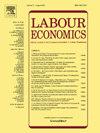机器人促进经济发展
IF 2.6
2区 经济学
Q2 ECONOMICS
引用次数: 0
摘要
最近的证据表明,在制造业中,自动化技术需要在生产率提高和就业损失之间进行权衡。本文在发展中国家的背景下对这种权衡提出了质疑。报告显示,在2008年至2015年期间,印尼制造业自动化带来了显著的就业增长,这是机器人进口快速增长的时期。基于制造工厂数据的分析提供了证据,表明这种权衡的缺失是由于采用机器人的生产率回报降低。因此,对于处于工业化早期阶段的国家来说,自动化带来的好处可能特别大。本文章由计算机程序翻译,如有差异,请以英文原文为准。
Robots for economic development
Recent evidence suggests that in manufacturing, automation technologies entail a trade-off between productivity gains and employment losses for the economies that adopt them. This paper casts doubts on such trade-off in the context of a developing country. It shows significant employment gains from automation in Indonesian manufacturing during the years 2008–2015, a period of rapid increase in robot imports. Analysis based on manufacturing plant data provides evidence that the absence of this trade-off is due to diminishing productivity returns to robot adoption. As a result, the benefits from automation could be particularly large for countries at early stages of industrialization.
求助全文
通过发布文献求助,成功后即可免费获取论文全文。
去求助
来源期刊

Labour Economics
ECONOMICS-
CiteScore
3.60
自引率
8.30%
发文量
142
期刊介绍:
Labour Economics is devoted to publishing research in the field of labour economics both on the microeconomic and on the macroeconomic level, in a balanced mix of theory, empirical testing and policy applications. It gives due recognition to analysis and explanation of institutional arrangements of national labour markets and the impact of these institutions on labour market outcomes.
 求助内容:
求助内容: 应助结果提醒方式:
应助结果提醒方式:


